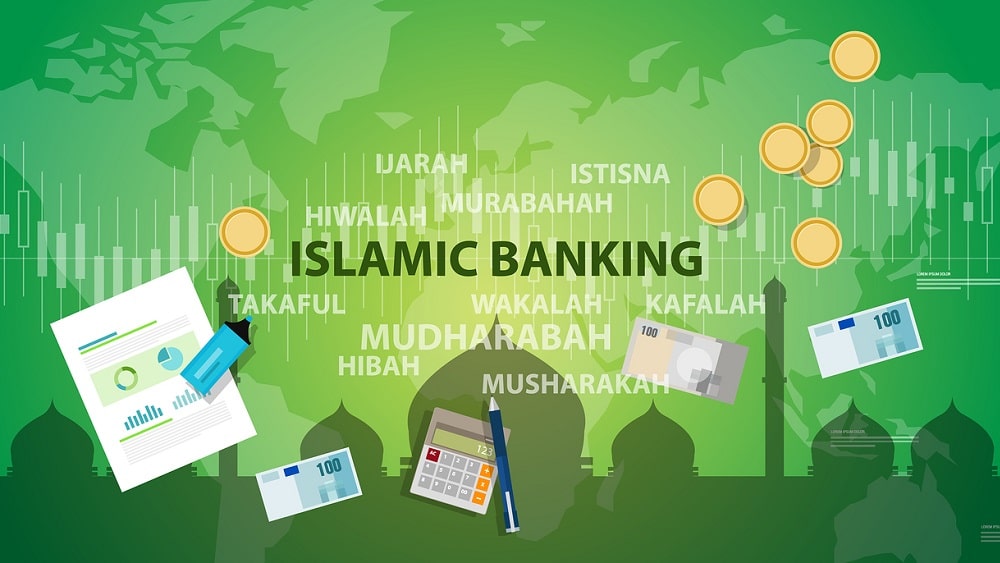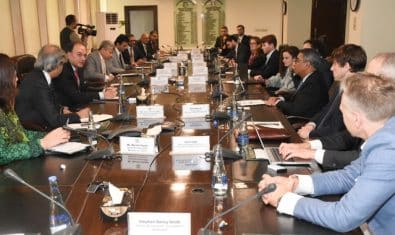In order to meet the increasing demands of competent human resource in the Islamic Banking Industry of Pakistan, the central bank has asked them to set up a comprehensive in-house policy on human resource capacity building to meet the future demand.
Islamic banking industry has expanded its operations in 111 districts of Pakistan with the branches surging to 2,589. The growth of the industry is impressive however its scope in the country is limited mainly due to the unavailability of competent human resource.
Initially, bankers from conventional banks moved to Islamic banking industry with little or no knowledge of Sharia financing, which did not progress the industry towards growth. The gradual capacity building of the staff and training institutes have produced a good lot of Islamic bankers that ultimately pushed the banking industry on the road to speedy growth.
The central bank, through different universities like IBA, LUMs and IMS (Peshawar), set up Centers for Excellence in Islamic Finance Education (CEIFEs) to train competent Islamic bankers at the top and middle level.
Some of the universities have launched an MBA program in Islamic Banking and Finance and more are likely to jump on the bandwagon.
However, there is a need for capacity building of the coming and present staff throughout the country, which will not only promote Islamic banking in small cities but will also help expand the operations of Islamic banks.
Guidelines for Islamic Banks
According to the new instruction, State Bank of Pakistan asked Islamic banks and institutions to develop a comprehensive Islamic banking training and development policy, which should cover, scope, coverage, training needs assessment, training calendar, training budget, training man days, training infrastructure, stakeholders and their responsibilities, selection of training personnel etc.
The policy shall be approved by Shariah Board and Board of Directors (BoD) of the IBI.
Banks shall encourage employees to obtain professional certifications relevant to their job requirements and may provide monetary or non-monetary incentives. Banks will be required to develop and use effective assessment tools to ensure active participation and learning of the participants. Participants not meeting the minimum criteria shall be required to undergo the training again.
As per Shariah Governance Framework, Islamic banks shall develop an annual plan for Islamic banking training for their BoD, executive management and staff/employees covering aspects of what, who, how, where and when.
It shall also meticulously follow regulatory guidelines for training and development of their Islamic banking employees at strategic, functional and operational levels, as prescribed by SBP from time to time.
The plan shall cover regular training and capacity building programs for all staff/employees designated at the Head Office including credit, risk management, audit, compliance, treasury, operations, marketing, regional/area offices and at the branch level including branch managers, operation managers, and relationship managers etc. The plan shall also specify training requirements for third party/contract staff and the officials of the conventional bank responsible for providing support functions to their Islamic banking division.
ALSO READ
Foreign Exchange Reserves Fall by $602 Million: SBP
Islamic banks shall arrange specific sessions for effective dissemination and understanding of guidelines or instructions on Islamic banking, issued by SBP from time to time. Islamic banks shall arrange awareness programs/seminars/workshops to keep employees/staff abreast with local and global developments in the field of Islamic banking and finance.
For the staff designated at any Islamic banking branch/window, the bank shall arrange a minimum of 8-10 man-days training on Islamic banking per year in addition to other soft skills training as per overall training and development policy.
In addition to above, Islamic banks are encouraged to develop an e-learning platform to ensure that relevant training/knowledge material is accessible to all employees through intranet for learning and reference purpose.
IBIs shall ensure that the in-house trainers undergo Training of Trainers (ToT)/Master Trainer Programs to build their skills required for effective delivery of training and help in their advanced professional development.
Banks shall intensify their efforts to collaborate with National Institute of Banking and Finance (NIBAF), Centers for Excellence in Islamic Finance Education (CEIFEs) and/or any other renowned local and international training institution to achieve the training targets for their BoDs, Shariah board members, key executives and all other staff/employees on an ongoing basis.
The central bank’s concerned department through its team shall make random visits to Islamic banking branches/windows to assess the understanding of staff as well as observe their interaction with customers to gauge customer satisfaction.






















